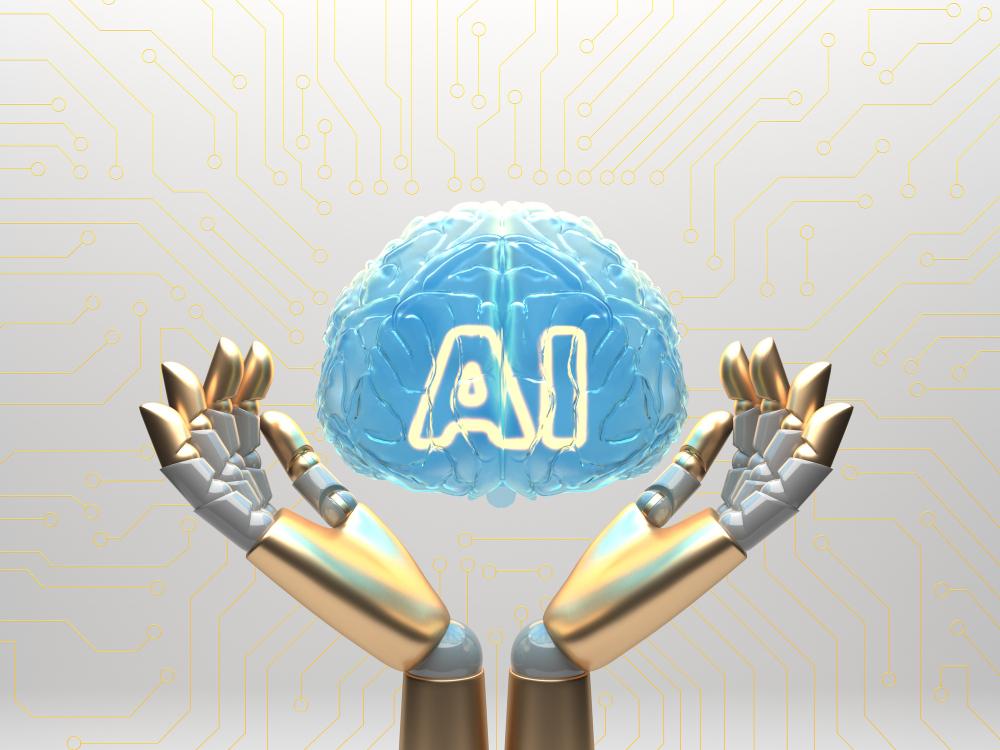Ethical Considerations in the Use of Generative AI

Generative Artificial Intelligence (AI) is revolutionizing multiple industries, from content creation to product design. With its ability to generate original content like images, text, and music, it has proven itself as an invaluable tool for creators and businesses alike. However, as the technology continues to advance, there are growing concerns about its ethical implications. It’s crucial to consider these issues to ensure that generative AI is used responsibly and for the greater good.
The Power and Potential of Generative AI
Generative AI has the potential to reshape industries, helping businesses innovate faster and more efficiently. Whether it's crafting compelling narratives, designing complex graphics, or even creating new product prototypes, the applications of generative AI are endless. However, as with any powerful tool, it comes with a responsibility to ensure that it is used ethically.
Generative AI development services have become increasingly popular as businesses look to integrate AI into their workflows. These services help ensure that the generated content aligns with brand values and complies with ethical standards, but the rapid growth of AI also brings challenges related to transparency, bias, and accountability.
Key Ethical Concerns
1. Bias and Fairness
One of the most significant concerns with generative AI is the potential for bias. AI systems are trained on vast datasets, which may contain inherent biases based on the data they are exposed to. These biases can be reflected in the AI’s outputs, leading to unfair or discriminatory results. For example, AI-generated content in hiring processes or law enforcement could inadvertently perpetuate stereotypes or favor certain groups over others.
To mitigate this risk, it is essential to carefully curate the datasets used to train generative models, ensuring they are as diverse and representative as possible. Additionally, AI developers need to implement bias detection and correction measures to promote fairness in the outputs.
2. Intellectual Property and Ownership
Generative AI creates content that often resembles the work of human creators. However, questions arise when it comes to intellectual property rights. Who owns the rights to the content generated by an AI? Is it the creator of the AI, the user, or the AI itself? These are complex legal and ethical questions that need to be addressed as AI continues to generate original work.
There is a need for clear guidelines and legal frameworks to determine ownership rights over AI-generated content. This would help to protect the interests of both creators and users, ensuring that the benefits of AI are shared fairly.
3. Transparency and Accountability
Another critical ethical consideration is transparency. As AI becomes more autonomous, understanding how decisions are made by generative models can become increasingly difficult. The "black box" nature of AI systems, where the decision-making process is not easily understood, poses challenges to accountability. If AI generates harmful or inappropriate content, who is responsible for that outcome?
Transparency in AI systems is crucial to building trust and ensuring that developers and organizations can be held accountable for their creations. Providing insight into how AI models work and their decision-making processes can help mitigate the risks associated with this issue.
4. Deepfakes and Misinformation
Deepfakes—AI-generated videos, images, or audio recordings that mimic real individuals—have become a growing concern. These can be used to create misleading or harmful content, often with malicious intent. The ethical implications of deepfakes are significant, especially when used to spread misinformation, defame individuals, or manipulate public opinion.
To address these concerns, it is important for society to develop ethical guidelines and legal frameworks that prevent the misuse of generative AI for harmful purposes. Additionally, the development of deepfake detection technologies is essential to help combat this growing issue.
Moving Forward: Ethical Guidelines for Generative AI
As the use of generative AI expands, the development of ethical guidelines will be crucial in ensuring that the technology is used responsibly. Here are some key steps that should be taken:
1. Establishing Ethical Standards
Governments, industry leaders, and AI developers should collaborate to create and enforce ethical standards for AI development and use. These standards should address issues such as bias, transparency, accountability, and intellectual property rights. By setting clear ethical guidelines, we can minimize the risks and maximize the positive potential of AI.
2. Promoting Education and Awareness
Ethics in AI should be a core component of AI education and training programs. By educating AI developers, business leaders, and policymakers on ethical AI use, we can ensure that the technology is deployed in ways that benefit society as a whole. Public awareness of the ethical concerns surrounding AI is also essential to ensure responsible use.
3. Encouraging Collaboration and Oversight
To navigate the ethical complexities of generative AI, collaboration between different sectors, including technology, law, and ethics, is essential. Establishing independent oversight bodies could help ensure that AI technologies are developed and used in compliance with ethical standards. This oversight would provide an extra layer of accountability, ensuring that AI development is conducted in a responsible manner.
Conclusion
Generative AI is undoubtedly one of the most transformative technologies of our time, but it is not without its ethical challenges. Addressing these concerns, from bias and fairness to transparency and deepfakes, is essential to ensure that AI is used for the benefit of society. By developing ethical guidelines and fostering a culture of accountability, we can harness the power of generative AI while mitigating the risks associated with its use. Ultimately, the responsible development and deployment of AI will determine how it impacts our future.







